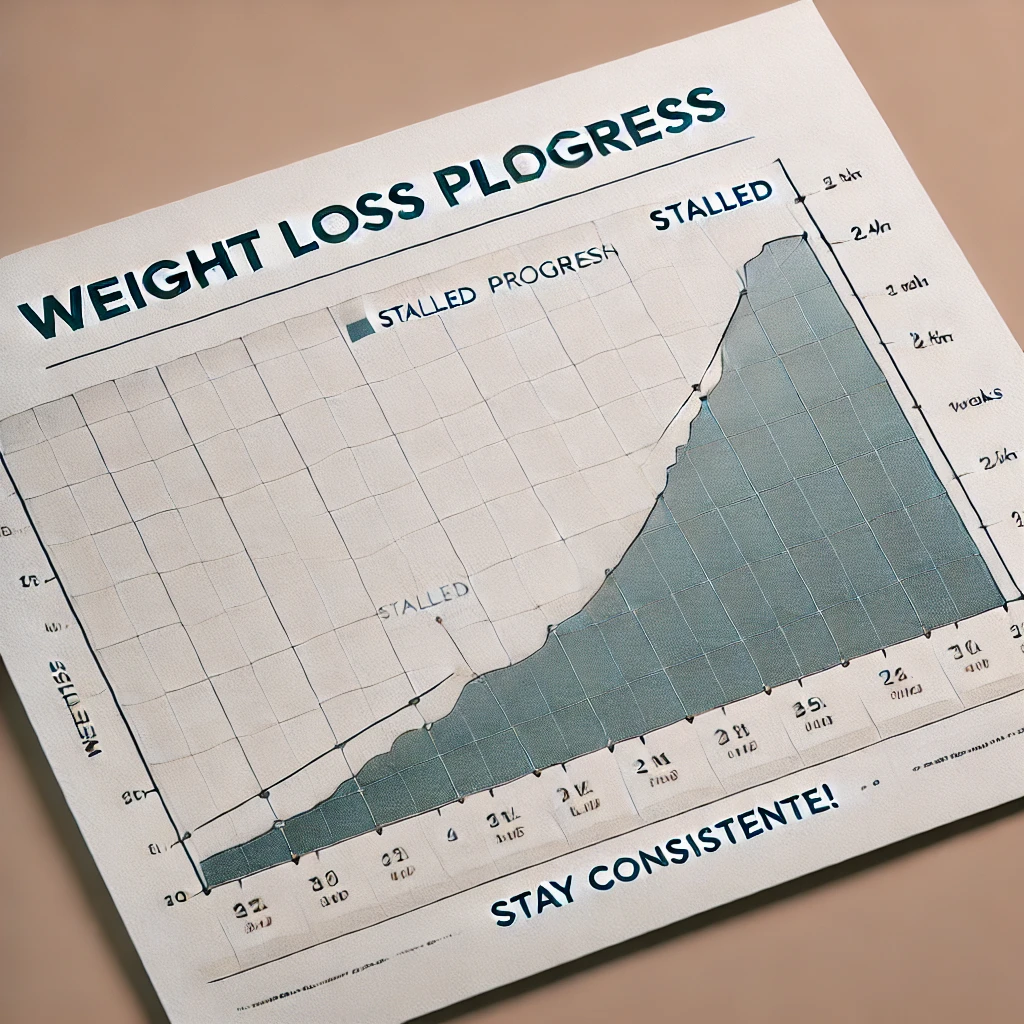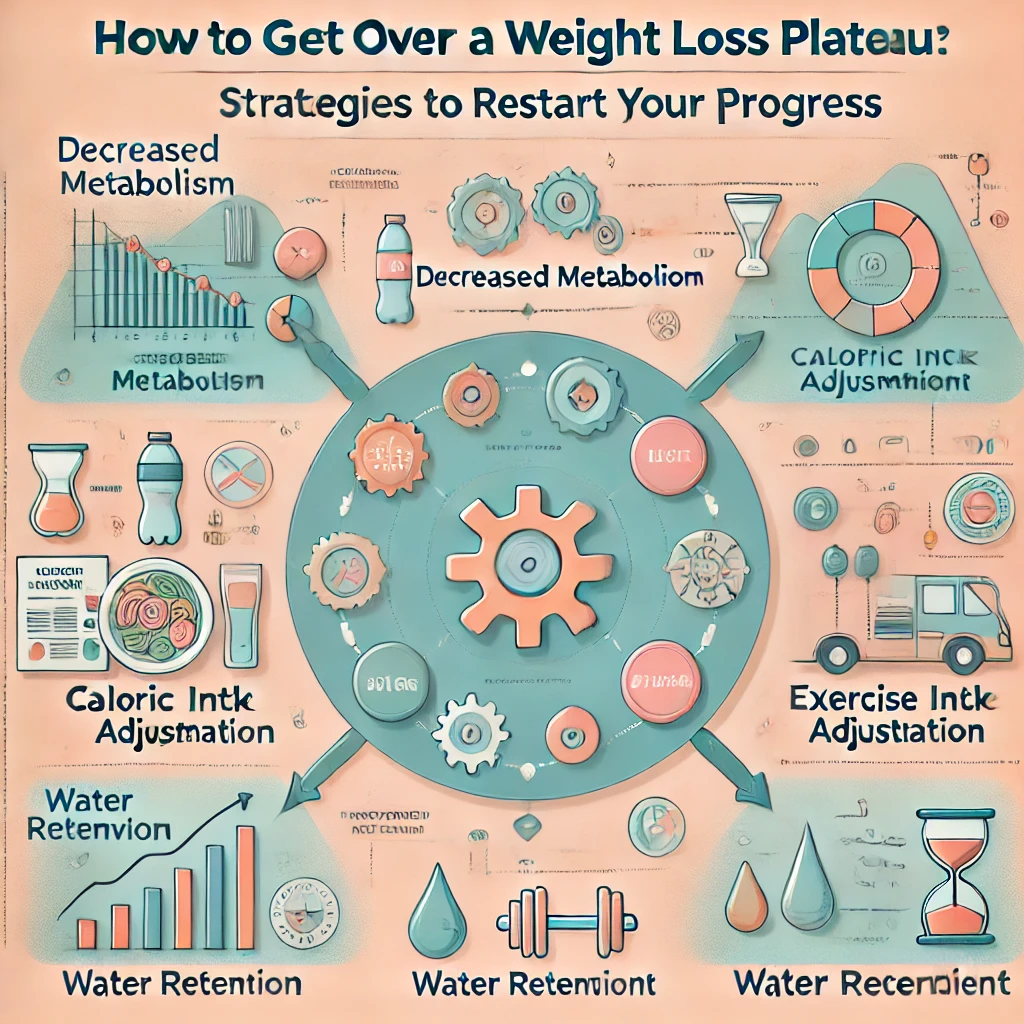
Stay Motivated and On Track: The Power of a Support Team for Weight Loss Success
Why Staying Motivated is Key to Weight Loss
Staying motivated is essential to weight loss because it sustains the consistency needed to achieve lasting results. Weight loss is often a long-term journey that requires dedication and lifestyle changes rather than quick fixes. Motivation fuels the persistence to maintain healthy habits like regular exercise and mindful eating, even when results aren’t immediately visible. Without motivation, it’s easy to become discouraged by slow progress, especially since weight fluctuates and plateaus can happen.
Additionally, motivation helps counteract obstacles, such as cravings, social pressures, and busy schedules, by keeping one focused on the end goal. It also reinforces self-discipline, making it easier to resist unhealthy choices and stick to a structured plan. Motivation can come from various sources, including setting small achievable goals, tracking progress, and celebrating milestones, which all create a sense of accomplishment and keep the drive alive.
Beyond physical health, motivation impacts mental resilience. Staying motivated fosters a positive mindset that supports healthier decisions, reduces stress, and boosts self-esteem. Ultimately, motivation transforms weight loss from a temporary challenge into a sustainable lifestyle, providing both the energy and focus to stay on track and accomplish long-term health goals.
How Motivation Impacts Your Weight Loss Journey
Understanding the Mental and Emotional Side of Weight Loss
Motivation plays a crucial role in the mental and emotional aspects of weight loss, influencing not only actions but also mindset. While diet and exercise are key, motivation fuels the perseverance needed to stay consistent, especially when progress slows or challenges arise. This inner drive helps individuals overcome common hurdles, such as cravings, social pressures, or temporary setbacks, by keeping focus on the long-term goal.
The mental side of motivation reinforces a positive self-image and confidence, which are essential for sustained commitment. When someone is motivated, they’re more likely to set realistic goals, celebrate small successes, and practice self-compassion — all of which are crucial for emotional well-being during weight loss. In contrast, low motivation can lead to feelings of frustration and defeat, often derailing progress. By fostering a resilient mindset, motivation empowers individuals to handle challenges, make healthier choices, and ultimately create lasting lifestyle changes.

Set Realistic Goals and Track Your Progress
Setting realistic goals and tracking progress are fundamental strategies for successful weight loss. Realistic goals provide a clear, achievable roadmap, breaking the journey into manageable steps that build confidence and prevent burnout. When goals are attainable and measurable, such as aiming to lose one to two pounds per week, they align with healthy weight loss guidelines and reduce the risk of frustration. This approach fosters a steady and sustainable pace, making it easier to adopt new habits that last.
Tracking progress is equally important, as it keeps you aware of your accomplishments and highlights areas needing adjustment. Regular tracking—whether by noting weight, measurements, or fitness milestones—offers concrete feedback, creating a sense of accomplishment and motivation to stay on course. Moreover, tracking allows for flexibility; if progress stalls, you can review your habits, adjust strategies, and try new methods to break through plateaus.
Progress tracking also brings attention to non-scale victories, such as improved energy levels, better sleep, or increased strength, which often signal meaningful health improvements even when the scale doesn’t budge. By setting realistic goals and actively tracking progress, you can stay motivated, recognize achievements, and build a foundation for lasting, healthy changes.
Setting SMART Goals for Weight Loss
Using Progress Trackers and Journals to Stay on Track
Setting SMART goals—Specific, Measurable, Achievable, Relevant, and Time-bound—can be highly effective for weight loss. SMART goals provide clear direction, making it easier to focus on actionable steps and realistic expectations. For instance, instead of a vague goal like “lose weight,” a SMART goal would be “lose 10 pounds in three months by exercising four times a week and reducing daily calorie intake by 500 calories.” This approach breaks down goals into clear objectives, boosting motivation and making it easier to gauge progress.
Using progress trackers and journals further supports goal achievement. Trackers—whether digital apps, charts, or handwritten logs—allow you to record daily achievements, from weight changes to fitness activities. Journaling provides space to reflect on challenges, successes, and emotions, building awareness of patterns that affect progress. These tools help you celebrate small wins and keep perspective during plateaus. Together, SMART goals and tracking promote a structured, mindful approach to weight loss, keeping you focused and resilient on your journey.

Find a Workout You Enjoy to Stay Consistent
Finding a workout you enjoy is key to maintaining consistency, which is crucial for long-term fitness and weight loss. When you enjoy an activity, you’re more likely to look forward to it, reducing the sense of obligation or dread that can make workouts feel like a chore. Enjoyable workouts increase motivation, making it easier to establish exercise as a routine rather than a short-term task.
The options for enjoyable workouts are extensive and can be tailored to fit different interests and fitness levels. For instance, if you love music and socializing, group classes like Zumba or dance-based workouts might keep you energized and engaged. Outdoor enthusiasts might prefer hiking, cycling, or running, which provide both fitness benefits and a connection to nature. Those looking for low-impact but effective routines might find joy in yoga, Pilates, or swimming, which improve strength and flexibility without high strain.
Consistency in enjoyable workouts makes it easier to reach fitness goals without feeling drained or stressed. Additionally, positive exercise experiences boost endorphins, helping to reinforce the habit and improve overall mood. By experimenting with different workouts and discovering what you love, you’ll build a sustainable exercise routine that supports not only physical health but also mental well-being.
Experiment with Different Types of Workouts
How to Stay Active Even When You’re Not Motivated
Experimenting with different types of workouts can help you stay active and discover what best suits your interests and lifestyle. Trying a variety of exercises—such as strength training, cycling, yoga, HIIT, or swimming—adds variety and keeps your routine exciting. This variety also allows you to work different muscle groups, prevent boredom, and find options that match your mood or energy level on any given day.
On days when motivation is low, focusing on staying active in smaller, manageable ways can make a big difference. You might take a brisk walk, do a quick 10-minute workout, or try some stretching exercises. Setting a simple, short-term goal like moving for just five minutes can often lead to a longer, more fulfilling workout once you get started. Consistency can also be achieved by scheduling workouts, partnering with a friend, or using reminders to create gentle accountability. By having a range of workout options and strategies to stay active, you can maintain an active lifestyle even when motivation dips.
You can maintain an active lifestyle even when motivation dips by having a range of workout options and strategies to stay active
Surround Yourself with Support and Accountability
Surrounding yourself with support and accountability can significantly enhance your ability to stay committed to weight loss and fitness goals. Having a supportive network—whether it’s friends, family, workout buddies, or online communities—creates a positive environment that encourages and motivates you to keep going, especially on challenging days. When people close to you understand your goals, they can offer encouragement, celebrate your progress, and provide understanding when you face setbacks. This emotional reinforcement strengthens your resolve and keeps you focused.
Accountability adds an extra layer of commitment by creating gentle pressure to stick to your plan. For instance, joining a fitness class, setting up workout dates with friends, or sharing goals with a family member can make you more likely to follow through. Additionally, digital tools like fitness apps or online groups provide virtual accountability, allowing you to track progress and connect with like-minded people.
Support and accountability also make it easier to build healthy habits because you’re part of a community that reinforces positive actions and makes the journey enjoyable. Celebrating successes together, no matter how small, boosts motivation and fosters a sense of accomplishment. Ultimately, surrounding yourself with support and accountability provides both encouragement and structure, making it easier to achieve and sustain your goals.
Building a Support Network for Weight Loss
How Accountability Partners or Groups Can Help
Building a support network is crucial for successful weight loss, providing both accountability and encouragement. An accountability partner or group offers a structured way to track progress, share challenges, and celebrate milestones. Research shows that people with accountability partners are more likely to stick to their weight loss goals because they feel responsible to someone besides themselves. Regular check-ins, whether with a friend, family member, or support group, can help maintain focus and motivation.
Support groups offer a sense of community, making it easier to stay committed, as members understand each other’s struggles and can share tips and experiences. Online or in-person, these groups reduce feelings of isolation, making the journey feel more manageable. Additionally, hearing about others’ successes and strategies can inspire new ideas. By fostering connection, accountability partners and groups make weight loss more sustainable and enjoyable.
Celebrate Small Wins and Keep a Positive Mindset
Celebrating small wins and maintaining a positive mindset are essential for sustainable weight loss. Every step forward, no matter how small, builds momentum and reinforces healthy habits. Small victories—like choosing a nutritious meal, completing a workout, or saying no to unhealthy snacks—are proof of progress. Recognizing these achievements encourages perseverance and helps create a rewarding cycle of goal-setting and accomplishment. Each time we celebrate a success, our confidence grows, and the journey feels less daunting.
Keeping a positive mindset is equally important. Challenges and setbacks are a natural part of any weight loss journey, but a positive outlook helps us bounce back instead of giving up. Instead of viewing slip-ups as failures, seeing them as learning experiences helps maintain motivation and prevent negative self-talk. Positive affirmations and self-compassion can further reinforce this mindset, turning challenges into opportunities for growth.
A positive outlook combined with celebrating small wins makes it easier to stay motivated and resilient. It fosters self-belief and keeps focus on what has been achieved rather than what remains. By valuing progress over perfection, weight loss becomes less about immediate results and more about long-term, enjoyable change. This mindset makes staying on track feel more fulfilling and sustainable.
Why Small Wins Matter
How to Stay Positive Even When Progress is Slow
Small wins are crucial in any weight loss journey because they provide immediate motivation and reinforce positive behaviors. Each small success, like drinking more water, choosing healthier foods, or exercising regularly, is a step toward larger goals. Celebrating these wins creates a sense of achievement and keeps momentum going, even when progress may feel slow. Recognizing these milestones shows that change is happening, making the process feel rewarding and encouraging consistency.
Staying positive when progress is slow can be challenging, but it’s essential. Focus on the journey rather than just the destination, acknowledging that every effort contributes to long-term success. Reframing setbacks as temporary allows you to keep moving forward without dwelling on perfection. Practicing self-compassion and surrounding yourself with supportive people can help lift your spirits and reinforce a positive outlook. Remember, steady progress often leads to sustainable results, and every step is a victory worth celebrating.
The Importance of Exercise Recovery for Weight Loss
How to Boost Your Metabolism for Faster Weight Loss
